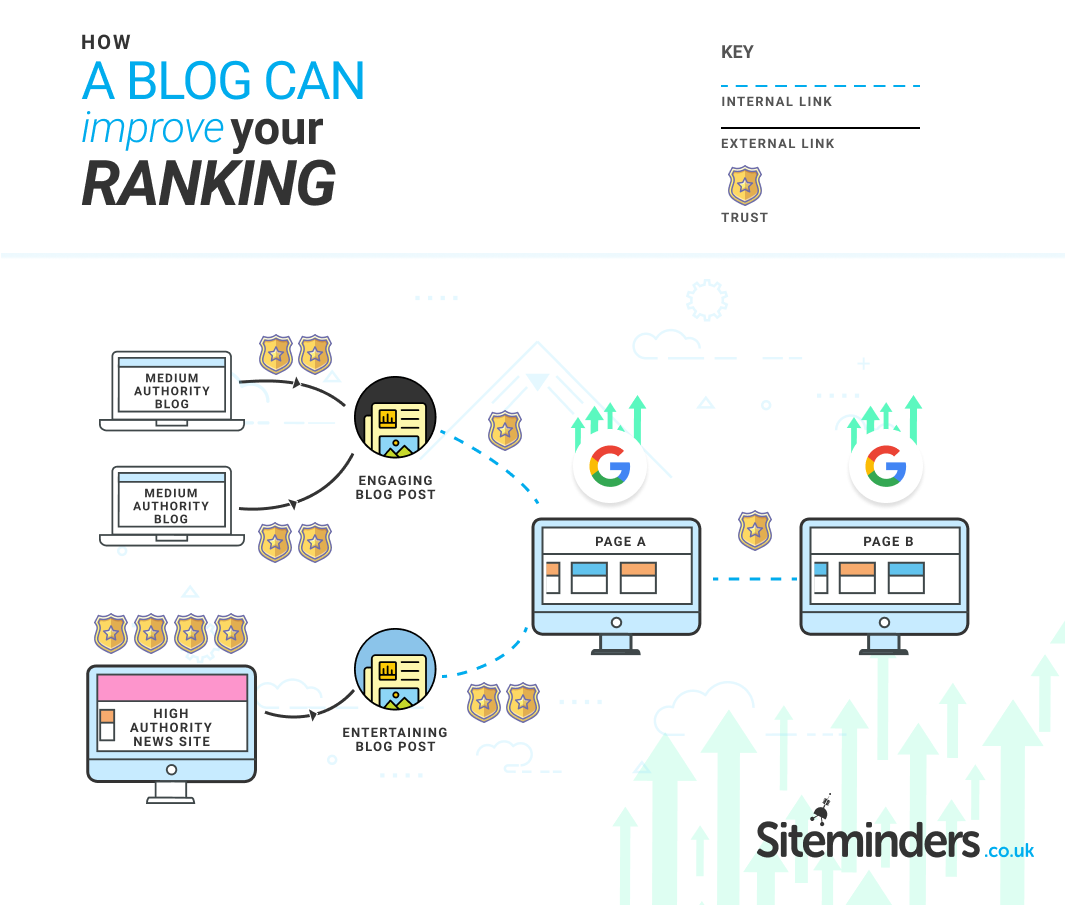Whilst having a blog may not be a necessity, it is a feature that we would highly recommend having for several reasons. The presence of a blog on your website provides your business with an area in which to produce educational and engaging content that can be shared on social media and generally inform your customers.
Your website’s SEO (Search Engine Optimisation) can be greatly improved by the presence of a blog, assuming it is used correctly. Creating content for the sake of creating it will not do anything for your marketing. Just like any other page on your website, a blog post needs to be carefully considered, crafted and well-targeted if it is to have a positive effect.
Why a Blog is Good for SEO
When it comes to formulating an SEO strategy, one of the key points that you will hear being discussed is links. Without getting too technical, the more good backlinks your website has pointing to it, the more likely it is to feature well in the search rankings. It is important to remember that not all links are good and not all good links hold the same weight – some are naturally better than others. For example, while a natural link from someone’s personal blog is good, it holds nowhere near the same amount of value as a link from a highly authoritative source such as the BBC or a national newspaper.
A blog post, which has been written to educate and/or entertain is far more likely to attract natural links than a product or service page. That is because the content of a blog post is engaging and encourages the user to share with their friends online. This is the internet’s version of word of mouth which, as any business owner knows, is one of the most valuable forms of marketing there is.
But Can't Any Page Be Linked To?
Whilst any page can be linked to, publishers aren’t going to naturally link to a product page because, in most cases, it doesn’t offer much value to their readers. This is particularly important when dealing with Google and other search engines as if they think the number of links to a page appears unnatural, you can incur a penalty that causes your website to be removed from the search results completely. A blog avoids these issues, generating natural links that improve your website's authority and rankings.
That is why most digital marking professionals will recommend the inclusion of a blog on your website and suggest that it is regularly updated with quality content. Having a blog section with outdated content is useless and means that your business’ online strategy is missing a huge opportunity to gain additional traffic and sales.
How to Increase the Reach of My Website’s Blog
When a blog post has been written and published on your website, you might think that's job done and no further work is required. Unfortunately, you would be wrong, as this is where the hard work begins.
When you publish a new post, your next step should be to share it with the world, as this will encourage your audience to share it beyond your initial online reach. To do this, you should share the post across your social media channels (but don’t overdo it) in a way that adds to the conversation, encouraging your followers to engage.
When written correctly, a blog post serves a specific purpose – usually to educate or entertain – and is shared for precisely that reason. This is why many businesses utilise blog posts to create how-to guides centred around their products and/or services, as this content will always be useful and never go out of date. These guides can then be shared as a useful resource for the months and years ahead, proving to be a highly valuable component of your digital marketing campaign!



